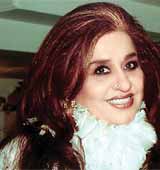equation. There is no doubt that the gender
equation in all fields of professional
life is a reflection of the gender
equation in our society and social
life. The incongruity is so apparent
in the Indian context. We have
female foeticide on the one hand
and the new age woman on the
other, who has made a mark in the
corporate and business world. And,
it is still a question of surmounting
barriers to seek equality.
In Tagore's play Chitrangada, the
heroine Chitra tells her husband, "I
am Chitra. No goddess to be
worshipped, nor yet the object of
common pity to be brushed aside
like a moth with indifference. If you
design to keepme by your side in the
path of danger and daring, if you
allow me to share the great duties of
your life, then you will know my
true self." In her book, My Truth,
Indira Gandhi has written, "Men
will not know their true selves until
and unless they allow women to
develop their full potential…. I can
say that I do not want women to
imitate men, but to have better
opportunities for the development
of their personality. Men and
women together can help create a
better society and a better world. In
this, there should be no question of
class, creed or sex."
Indira Gandhi has said that what is
remarkable about Indian women is
not their achievements in different
fields, but the fact that they have
been able to break through the
prejudices and barriers. She has
written, "The Indian concept of
women has been governed by two
parallel currents—the visible one of
the woman in a subordinate role, the
weak one; and underlying it, that of
woman as the symbol of energy, the
active principle. For the few women,
whose names are known, there are
the millions of unknown who have
shaped the course of nations by their
own activity or by the influence they
have wielded on their families."
The basis of gender is not merely a
sexual one. The biological nature
of the male and female is the
reason why the man assumed the
dominant role. Gender is very
much a part of human life. The
sexual division of labor developed
because of biological reasons. The
woman could not venture forth as
she was tied to her functions of
childbirth and lactation. The man
became "the hunter" and woman
"the gatherer". Subsequent social
condi tioning reinforced the
assumptions of these roles. As a
child, the boy is given guns to play
with, while the girl plays with
dolls. The idea that the boy will
grow up to be the "protector" and
the girl "the protected" is instilled
from childhood and so is the idea
of the woman being the weaker
sex. This meant that the boy
should be given al l the
opportunities so that he can earn
and support his wife and family.
The girl did not need it. All she
had to do was to procreate and
tend to the children and family.
She was instructed on how to cook
and keep a house and how to tend
to the men in the house, be it her
father, brothers or husband. Thus,
the female identity developed. The
fact remains that whether a woman
is educated or not, she wants to be
respected and treated equally. That
is also inherent in her nature.
